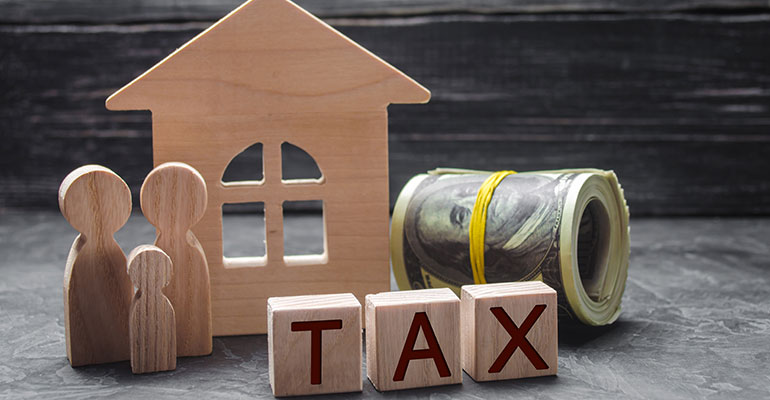
Buying a house is a major financial decision that can have significant tax implications. Many homebuyers wonder how much money they can get back in tax deductions for buying a house. The answer to this question depends on several factors, such as the amount of mortgage interest paid, property taxes, and other deductions. In this post, we will provide you with a guide on how much money you can get back in taxes for buying a house, along with tips to maximize your tax savings.
Mortgage Interest Deduction
One of the biggest tax benefits of buying a house is the mortgage interest deduction. This allows you to deduct the interest paid on their mortgage from taxable income. For most homeowners, the mortgage interest deduction can result in significant tax savings.
Property Tax Deduction
Another tax benefit of buying a house is the property tax deduction. Homeowners can deduct the amount of property taxes paid on their primary residence from their taxable income. This deduction can result in significant tax savings, especially for homeowners in areas with high property tax rates.
Home Office Deduction
You might be qualified for the home office deduction if you work from home. Based on the proportion of your home that is used for business purposes, you are able to deduct some of your home expenses. You must utilize a specific space in your home solely for work-related activities to be eligible for the home office deduction.
Energy-Efficient Home Improvement Deduction
You might be qualified for a tax credit if you upgrade your HVAC system or install solar panels as energy-efficient home improvements. Homeowners may claim a credit of up to $1,500 or 30% of the cost of eligible improvements under the energy-efficient home improvement credit.
First-Time Homebuyer Credit
First-time homebuyers might be qualified for a tax credit. The first-time homebuyer credit entitles qualified taxpayers to a credit of up to 10% of the cost of their residence, with a cap of $8,000 per claim. You must fulfill certain income and purchase price requirements in order to be eligible for the credit.
Moving Expenses Deduction
You might be qualified for a moving expenses deduction if you relocate for a new job more than 50 miles from your previous residence. With this deduction, you can deduct moving expenses for your furniture and personal belongings as well as travel costs from your taxable income.
Closing Costs Deduction
While most closing costs are not tax-deductible, there are some exceptions. Some of the costs associated with buying a house, such as mortgage points and loan origination fees, may be deductible in the year of purchase. It is important to consult with a tax professional to determine which closing costs are deductible. In addition, if you are selling your home, you may be able to deduct certain closing costs from your taxable income. These can include real estate commissions, title insurance, and legal fees. However, it is important to note that not all closing costs are tax-deductible, and the rules for deductibility can vary depending on your specific situation.
It’s worth noting that the tax benefits of buying a house can vary depending on changes to tax laws and regulations. It’s important to stay informed and up-to-date on any changes that may impact your ability to claim tax deductions and credits for homeownership expenses. Consulting with a qualified tax professional can help ensure that you are taking full advantage of all available tax benefits when buying and owning a home.
Tips to Maximize Your Tax Savings
- To maximize your tax savings when buying a house, there are several steps you can take:
- Keep accurate records of your expenses related to buying and owning your home, such as mortgage interest, property taxes, and home improvement costs.
- Engage tax resolution/consultation services to ensure that you are taking advantage of all available deductions and credits.
- Consider accelerating your mortgage payments to maximize your mortgage interest deduction.
- Make energy-efficient improvements to your home to qualify for the energy-efficient home improvement credit.
- Keep track of any moving expenses related to a job relocation, as these expenses may be deductible.
Buying a house can be a smart financial decision that can result in significant tax savings. By taking advantage of deductions and credits such as the mortgage interest deduction, property tax deduction, home office deduction, energy-efficient home improvement credit, first-time homebuyer credit, moving expenses deduction, and closing costs deduction, you can maximize your tax savings and reduce your overall tax liability. It is important to keep accurate records of your expenses and consult with a tax professional to ensure that you are taking advantage of all available tax benefits.
